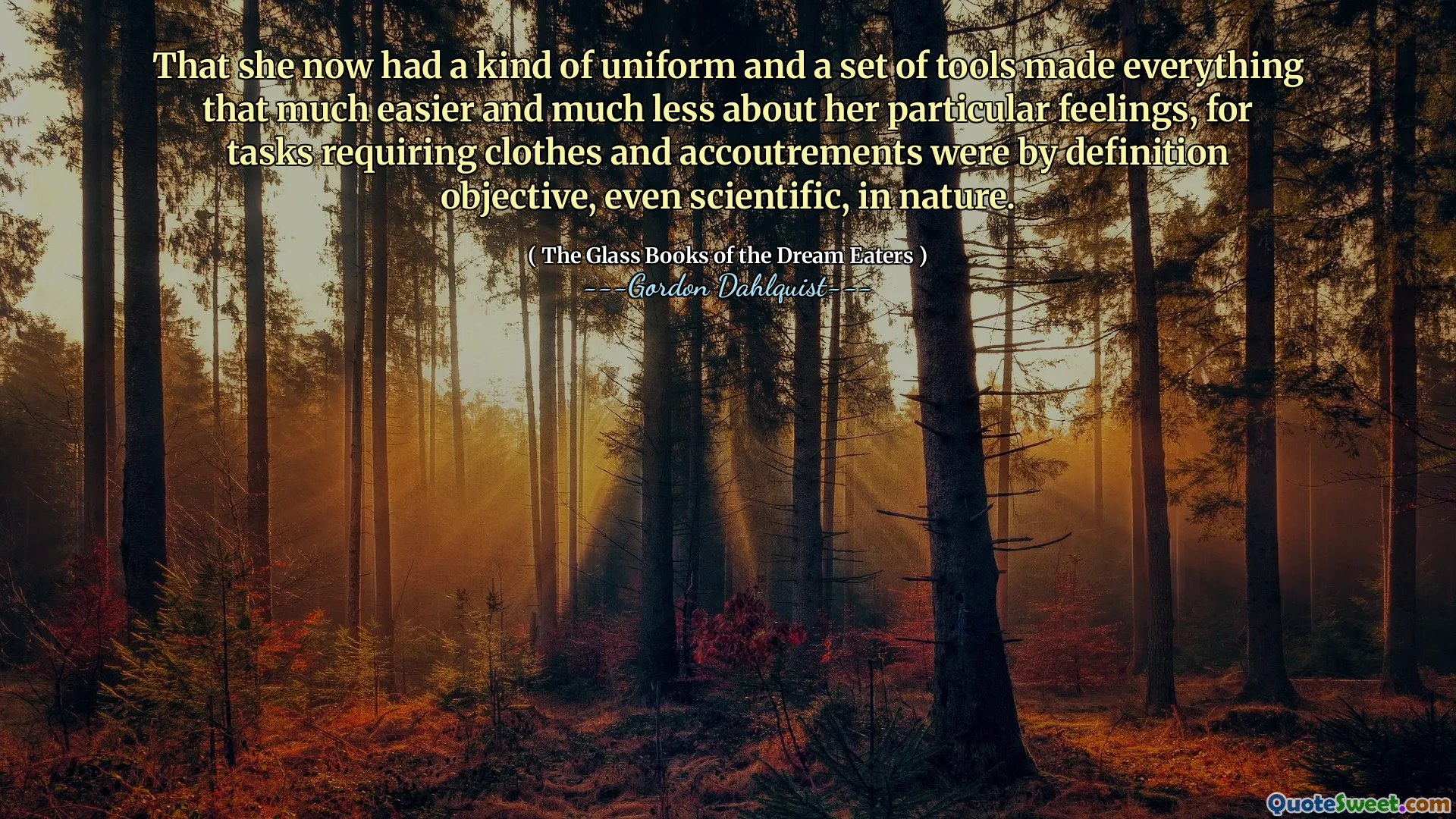
That she now had a kind of uniform and a set of tools made everything that much easier and much less about her particular feelings, for tasks requiring clothes and accoutrements were by definition objective, even scientific, in nature.
This quote reflects on the transformative power of adopting standardized tools and attire to approach tasks more objectively. In many ways, human endeavors are deeply intertwined with perception, emotions, and personal biases, which can both enrich and complicate the process. By establishing a uniform and utilizing specific tools, an individual steps into a realm where personal feelings are somewhat subdued, shifting focus toward the task at hand. This mirrors real-world practices where uniforms, recipes, or standardized procedures are used to ensure consistency and impartiality—be it in science, military, or even creative fields. In the context of the quote, such a regimen allows the individual to detach from subjective influences that could hinder precise and efficient work, emphasizing an almost scientific approach. It highlights how external symbols like clothes and tools serve as catalysts for a mindset oriented towards objectivity, consistency, and practicality. Furthermore, this approach underscores the importance of structure in achieving focused and effective execution of tasks, promoting a sense of discipline that can be pivotal especially in challenging or chaotic environments. On a philosophical level, it suggests that sometimes, removing the personal lens—by means of uniforms and tools—enables a clearer, more universal perspective, where the work is valued more than individual identity or feelings. This resonates with broader themes around professionalism, objectivity, and the way humans leverage external frameworks to transcend personal biases, fostering a more scientific or universal outlook even in subjective realms.






